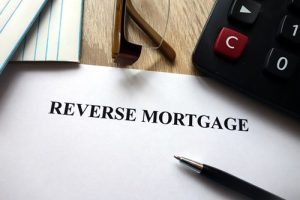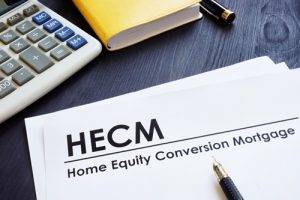
Retirement means you get to relax and enjoy, but debt can cast a shadow over your golden years. For homeowners aged 62 and older, there’s a smart solution that can help consolidate debt while improving monthly cash flow: the Home Equity Conversion Mortgage (HECM). This reverse mortgage guide will walk you through how a HECM loan works and how it can benefit you.
Reverse Mortgage Tips: What Exactly is a HECM?
HECM stands for Home Equity Conversion Mortgage. It’s the most popular type of reverse mortgage and the only one insured by the Federal Housing Administration (FHA). Essentially, it allows homeowners to convert a portion of their home’s equity into cash.
In addition, this money can be accessed in several ways: a line of credit, fixed monthly payments, a lump sum, or a combination of these options. Importantly, the funds are loan proceeds and not income, so they are generally tax-free.
Also, one key advantage is that homeowners continue to own their home and they do not have to make monthly payments for their reverse mortgage in Columbia SC. Instead, they must maintain the property and cover taxes and insurance.
Read More Reverse Mortgage Tips: Discovering Debt Relief with HECM Loans




 A reverse mortgage loan offers senior homeowners a way to leverage their home equity, providing financial flexibility and enhancing their retirement experience. This article explores this concept and highlights ten ways older homeowners are using this financial tool.
A reverse mortgage loan offers senior homeowners a way to leverage their home equity, providing financial flexibility and enhancing their retirement experience. This article explores this concept and highlights ten ways older homeowners are using this financial tool. As of September 23rd, a new rule from the US Department of Labor will require stricter fiduciary duties when a trusted financial services provider gives investment advice about retirement-focused investments. The financial adviser community is a popular referral source for a
As of September 23rd, a new rule from the US Department of Labor will require stricter fiduciary duties when a trusted financial services provider gives investment advice about retirement-focused investments. The financial adviser community is a popular referral source for a 
 Retirement should be a time of fulfillment. Yet, many retirees face ongoing mortgage payments, insufficient funds for unexpected expenses, or a lifestyle that doesn’t match their aspirations. Moreover, the HECM line of credit (Home Equity Conversion Mortgage) is also known as a
Retirement should be a time of fulfillment. Yet, many retirees face ongoing mortgage payments, insufficient funds for unexpected expenses, or a lifestyle that doesn’t match their aspirations. Moreover, the HECM line of credit (Home Equity Conversion Mortgage) is also known as a 
 Seniors today are facing numerous economic challenges. So, with inflation rising, interest rates increasing, and the cost of medical care escalating, many are looking for ways to supplement their income. Moreover, one viable option for homeowners is a
Seniors today are facing numerous economic challenges. So, with inflation rising, interest rates increasing, and the cost of medical care escalating, many are looking for ways to supplement their income. Moreover, one viable option for homeowners is a